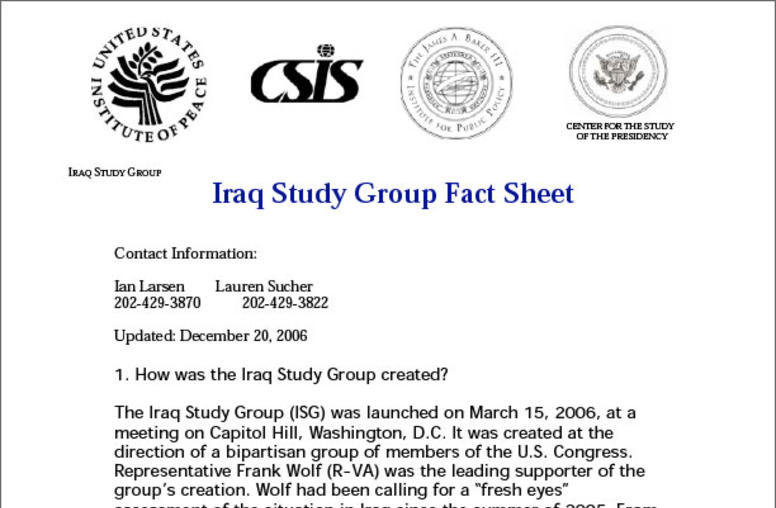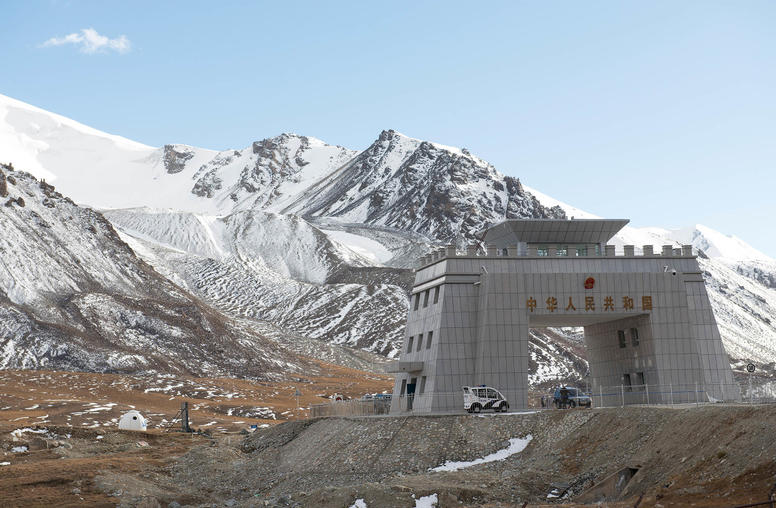Publications
Articles, publications, books, tools and multimedia features from the U.S. Institute of Peace provide the latest news, analysis, research findings, practitioner guides and reports, all related to the conflict zones and issues that are at the center of the Institute’s work to prevent and reduce violent conflict.

Scott Smith on the Afghan Peace Process
Following unprecedented talks between Taliban and Afghan leaders this week, which have provided renewed hope for peace, the Taliban claimed credit for an attack in Ghanzi province. Scott Smith says Afghanistan is now exhibiting “one of the usual paradoxes of this stage of a peace process … where both parties, as they begin to talk more, they begin to fight more.”

Moeed Yusuf on Imran Khan’s Visit to Washington
Following Khan’s visit with President Trump, Moeed Yusuf says that the two leaders appear to have a chemistry that could improve U.S.-Pakistan relations. Although the two countries have been at odds over the Afghan conflict, Yusuf says Trump and Khan indicated they would “work together to find ways to break the impasse on Afghanistan.”

Iraq Study Group Fact Sheet
The Iraq Study Group (ISG) was launched on March 15, 2006, at a meeting on Capitol Hill, Washington, D.C. It was created at the direction of a bipartisan group of members of the U.S. Congress. Representative Frank Wolf (R-VA) was the leading supporter of the group’s creation. Wolf had been calling for a “fresh eyes” assessment of the situation in Iraq since the summer of 2005. From its inception, the ISG was designed to be bipartisan, and the initiative attracted broad, bipartisan support among members of the House and Senate.

Engaging the Post-ISIS Iraqi Religious Landscape for Peace and Reconciliation
Religious actors in Iraq wield considerable influence, and Iraqis perceive them as playing an important role in moving the country toward peace. This report analyzes the influence of Iraq’s religious actors—who has it, why they have it, and how they exercise it—to illuminate their crucial role in supporting peace and reconciliation efforts and to help policymakers and practitioners understand how to engage them in efforts to advance peace.

Engaging the Post-ISIS Iraqi Religious Landscape for Peace and Reconciliation (Arabic)
Religious actors in Iraq wield considerable influence, and Iraqis perceive them as playing an important role in moving the country toward peace. This report analyzes the influence of Iraq’s religious actors—who has it, why they have it, and how they exercise it—to illuminate their crucial role in supporting peace and reconciliation efforts and to help policymakers and practitioners understand how to engage them in efforts to advance peace.

Nancy Lindborg on the Role of People Power in Global Security
Returning from the Halifax International Security Forum, USIP President and CEO Nancy Lindborg explains why the growing number of “people power” movements around the world have left her optimistic, saying “the notion of what constitutes national security continues to evolve…security includes governments that are responsive to the needs of their people.”

Steve Hege on Colombia’s Protests and Stalled Peace
In Colombia, protesters are demanding that President Ivan Duque address concerns over economic inequality, corruption, the Venezuela crisis and implementation of the 2016 FARC peace accord in what USIP’s Steve Hege calls the country’s “largest mass mobilization in four decades.”

Frank Aum on the Year in North Korea Diplomacy
With North Korea’s self-imposed, year-end deadline for a nuclear deal looming, USIP’s Frank Aum says that while complete denuclearization isn’t likely in the near term, “all of the components of a good-enough interim nuclear deal are there, but both sides need to be flexible on some of the harder issues.”

Strategic Implications of the China-Pakistan Economic Corridor
Great power politics is resurgent in South Asia today. China’s growing military ambition in the region is matched in financial terms by its Belt and Road Initiative, the largest and most advanced component of which is the China-Pakistan Economic Corridor. What remains unclear is how the United States should navigate the new dynamic. This report, which is based on research and consultations with experts worldwide, addresses the question of how the India-Pakistan rivalry will play into the emerging great power competition.

Maria Stephan on What We Get Wrong About Protest Movements
This year has seen an extraordinary rise in people power. Despite significant coverage of these movements, many misconceptions about how they work persist. USIP’s Maria J. Stephan addresses those myths and says, “The most defining variable of successful nonviolent movements is large, diverse and sustained participation.”